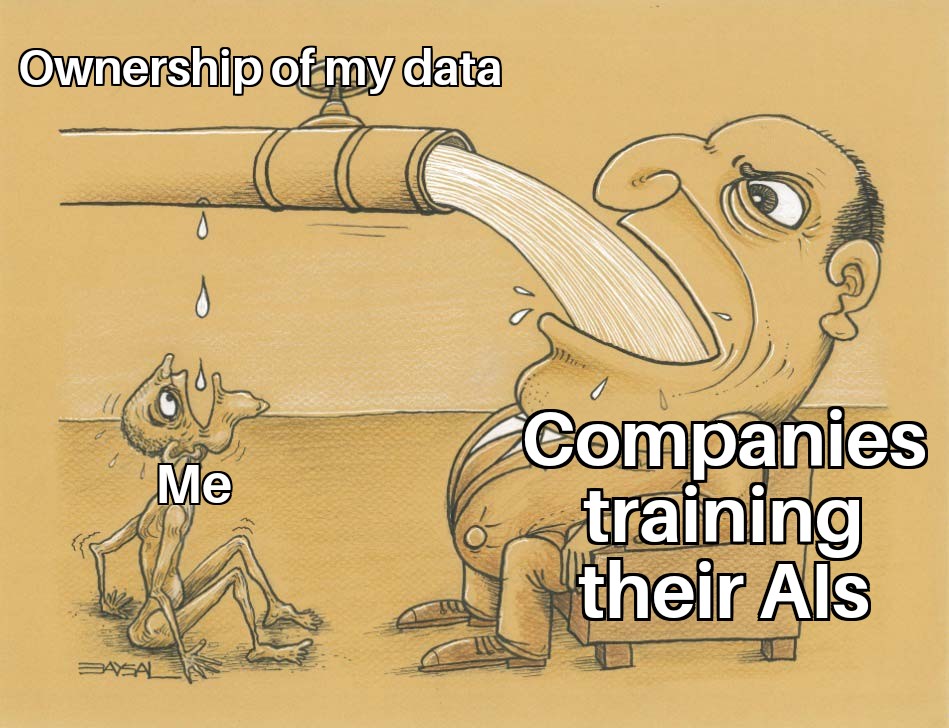this post was submitted on 14 Jun 2024
828 points (97.3% liked)
memes
10442 readers
3212 users here now
Community rules
1. Be civil
No trolling, bigotry or other insulting / annoying behaviour
2. No politics
This is non-politics community. For political memes please go to !politicalmemes@lemmy.world
3. No recent reposts
Check for reposts when posting a meme, you can only repost after 1 month
4. No bots
No bots without the express approval of the mods or the admins
5. No Spam/Ads
No advertisements or spam. This is an instance rule and the only way to live.
Sister communities
- !tenforward@lemmy.world : Star Trek memes, chat and shitposts
- !lemmyshitpost@lemmy.world : Lemmy Shitposts, anything and everything goes.
- !linuxmemes@lemmy.world : Linux themed memes
- !comicstrips@lemmy.world : for those who love comic stories.
founded 1 year ago
MODERATORS
you are viewing a single comment's thread
view the rest of the comments
view the rest of the comments

Not really, though there's probably something like that out there. It's more a collection of skills that build on each other, finding a problem to solve, and then solving it (with occasional detours along the way to fill in any knowledge gaps).
Basically, just stack these on top of each other:
The next thing you decide to deploy will usually be easier and will further extend and cement the skills you've just used.
It's definitely a process and collection of skills rather than just one monolithic thing, but each one builds off the other. There's a learning curve, sure, but just reading the docs for different things will usually get you going or provide a "jumping off" point. e.g. Many services utilize Docker, so you'll see that in a lot in the docs and probably end up detouring to learn the basics of working with it.
Some self-hostable applications do have easy deploy scripts which can definitely be good for beginners, but I tend to not like those as if/when something goes wrong, you're ill-equipped to do any meaningful troubleshooting.
Members of various selfhosted communities are usually happy to help as long as you're willing to learn; we typically don't like to just do it for you lol.